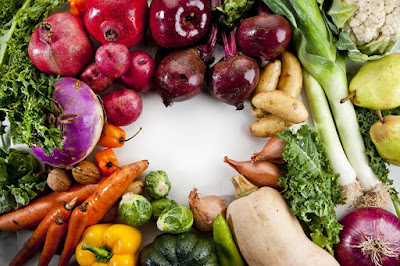There is no doubt that the popularity of organic foods has grown by
leaps and bounds over the past 10 years.
Consumers believe that organic foods are healthier for them, and safer
for the environment.
But is the latter really true? I
have addressed that question in a couple of ways, and a thoughtful reader might
come to a different conclusion about the carbon footprint of organic foods
after considering my rationale.
There are climatic limitations on where organic crops can be grown. For
example, avocado production is limited to a few relatively small areas of the
US, with heavy imports from Mexico during times of the year when there is no US
production available to the markets. This means that, far from the “local food”
movement that has become so much in vogue in many areas of the US, significant
transportation costs, and petroleum based emissions, play a larger role than
consumers might expect when comparing the organic versus conventional
avocados. The same examples can be made
of a variety of other crops, which, even if fairly widely adapted in parts of
the US, offer organic availability only in limited production areas, which may
be further away from most consumer demand centers than the non-organic versions
of the same crop. While the US has
country of origin labeling for many products, would it not be sensible to have
labeling about the carbon footprint of a certain product? To be true to the health and environmental
benefits that are often part and parcel of organic marketing, would it not be
important to disclose this to consumers?
The other element of this
question has to do with farming practices.
Farmers use herbicides and pesticides to control weeds and bugs,
respectively. Without those products,
weeds and bugs can lead to greater use of water for the crops (because weeds
consume water that the crop would otherwise use, and bugs can increase plant
stress, thus increasing plant water needs).
And, because many organic crops will not produce the same quantity as,
say, the same crop conventionally grown on a given acre, the result can be that
more land, and more water, and needed to grow X amount of organic crops to
match the same conventional crop quantity raised on fewer acres of land.
Learn More:
https://www.linkedin.com/in/benedicttpalenjr
https://www.pinterest.com/benedicttpalenjr/
https://gust.com/companies/benedict-t-palen-jr
https://www.archilovers.com/benedict-t-palen-jr/

No comments:
Post a Comment